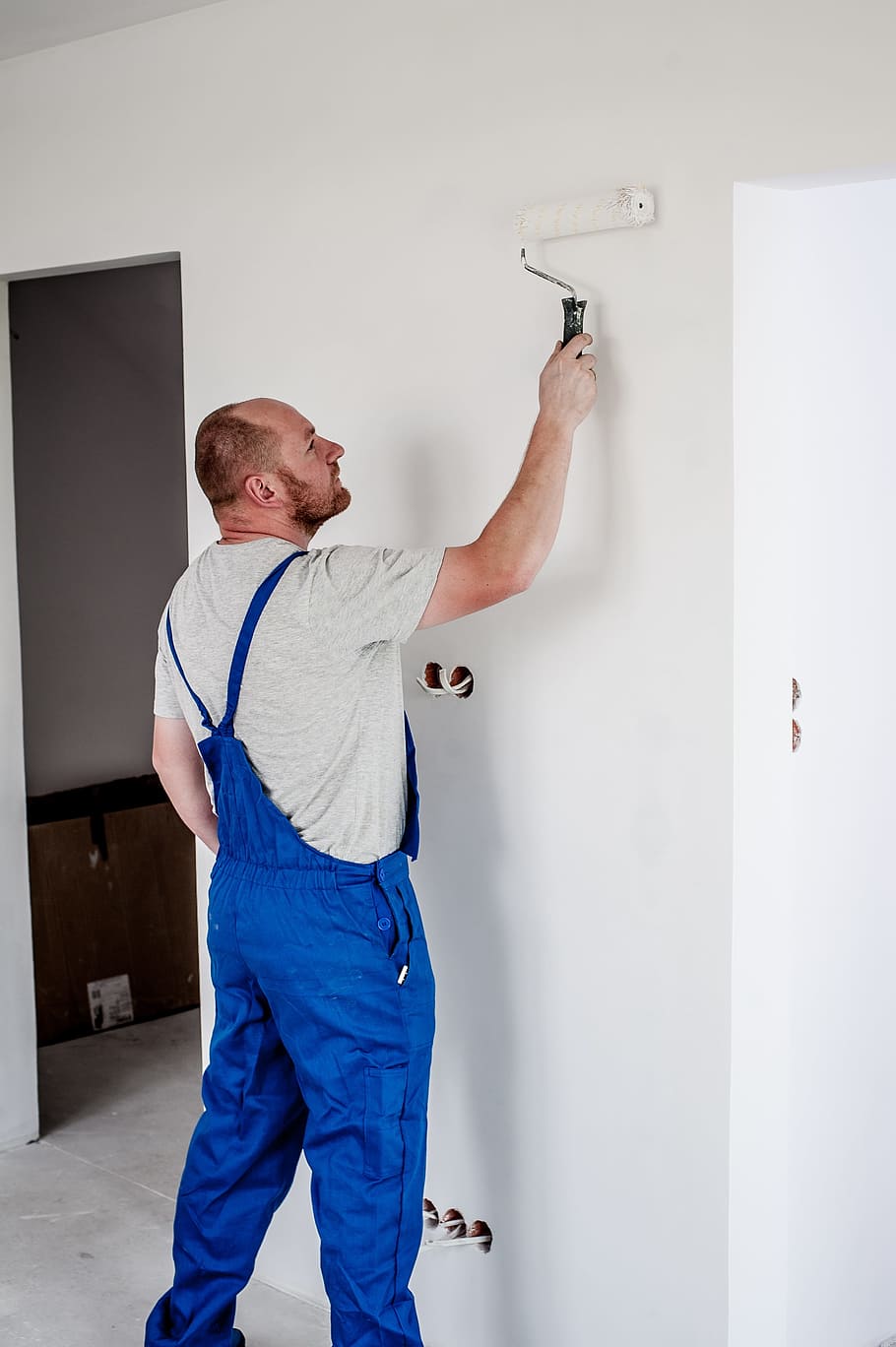It is certain that death, taxes, and home renovations will come in due course, which may make starting a business more feasible. A fresh coat of paint can do wonders for any home if you watch improvement shows long enough.
Nevertheless, only some are skilled with a brush or have the patience to do the job independently. By learning how to start a painting business, you can express your creativity and become your own boss.
Painting business
A painting business generally requires a permit from your local government. You may also need to register as a business, carry insurance and open a bank account. Keep receipts for all purchases related to the business in order to file them at tax time or for reimbursement from clients if necessary. Set up an accounting system so you know how much money you have coming in and going out every month.
Need of workers
In some cases, it is recommended to hire workers. In other cases, people want to work as their own boss as a solo-painting contractor. People who do not wish to hire employees can contract with painters on an hourly basis or by paying a flat fee per project that they would then complete themselves. If you decide to hire employees, you will need to file for worker’s insurance.
You’ll also want to give customers the option of hiring an outside painting company for projects they don’t want or can’t complete themselves, such as when working on interior surfaces, ceilings or trim. These customers are considered referral business. Starting your own commercial painting business can be challenging but is an idea that can certainly pay off. To start a painting business here are some tips given below:
Research the painting industry
Before investing in tools or supplies, do your research. Take the time to review and understand all aspects of the industry and competition before taking any action. Analyze market demand and potential for growth in areas where you would like to work, especially if commercial contracts may influence your strategy over residential jobs.
Understanding how long it takes to run a full cycle of projects will help determine whether this line of work is best suited for you and with certain contract cycles, including small-scale residential painting, you can easily make a year’s worth of income within four weeks. Commercial painters would do well to require longer cycles due to larger projects and less frequent work.
Stay Organized
The more organized you are the easier it is to run your business. Keeping accurate records of job numbers, contact information for clients, and payment history will ensure that no project falls through the cracks if you suddenly get tied up with multiple jobs or unexpected circumstances arise at one job site.
Creating an organized filing system with contracts, bids, warranties and other pertinent documents will help when you need to resolve disputes or even keep track of what needs to be completed on your last visit so you don’t lose money or disappoint your customer by repeating a step that’s already been completed.
Know the equipment needed before investing in it
As a painting contractor, you’ll have several expenses to consider before embarking on your new career. In addition to the cost of equipment and supplies, don’t forget about your work vehicle as well as liability insurance premiums and an appropriate business license or permit for where you live and where you plan to operate your business not to mention additional labor costs such as paying yourself to get up and running.
Make sure you have the proper insurance coverage
If you’re not properly insured, you could be held liable for damages. Even more important than compensation for injuries is the fact that contractors are required to carry general liability insurance. If business becomes too high-risk or demand fluctuates dramatically, your policy may require adjustment. Insurance agents can help you sort through what’s best for your needs and adjust rates accordingly, some offer package plans at discounted rates to provide contractors with full-coverage protection at very reasonable prices.
Consider Licensing Requirements
This depends on where you live and who your customers will be a contractor’s license is not always required when working for an individual homeowner rather than another business owner, but it certainly increases credibility in the eyes of potential customers. Each state has different requirements for contractor licensing, so check with your local Department of Consumer Affairs to learn more.
Hire an accountant or financial advisor
Taxes are not fun but the IRS doesn’t care that you moved into this line of work because you love painting; if you don’t keep very good records it will be hard to prove that you’re entitled to all the deductions you take. Whether or not your business is incorporated will also determine how much income tax is taken out in addition to payroll withholding taxes. For example, if you hire employees in addition to yourself, hiring a bookkeeper can help with payroll processing, but at least one person in the business should hold basic accounting qualifications. A financial advisor can provide invaluable assistance when it comes to increasing company profits or finding new ways to minimize taxes.
Be prepared for the unexpected
To expect that nothing will ever go wrong is actually quite ambitious and as such, contractors should be prepared for all sorts of emergencies and problems along the way. As a painting contractor, you need to prepare yourself with contingencies like cashing larger checks that clients owe you instead of dealing only with paper ones; keeping enough cash on hand in case banks slow down; having your own truck and equipment (not others’ around the corner) because if yours breaks down and you don’t have a backup plan, there goes your livelihood; and other various essentials necessary to keep your business smoothly instead of sinking into debt over one disaster.
Make your business brand aware
In today’s competitive market, if you decide to start a painting business you will have to stand out from the crowd. If your plan is to advertise yourself through local business directories and community advertising, be sure that your company name and logo can be easily recognizable and distinguishable from other businesses in your industry by customers.
There are many companies with similar name options Painting & Decorating Contractors, Inc., Painting Unlimited, or Painting Pros Ltd., for example and some contractors choose initials such as P&D instead of spelling out “painting” on all promotional materials just so their company is easy to identify among competitors.
How much does it cost to start a painting business?
The cost of starting an painting business can vary greatly depending on the services you want to offer. If you are looking to start a painting company with staff, equipment and service offerings similar to the national franchise painters, it will require an investment of around $60,000–$100,000.
Like most businesses however, the costs of starting a painting business are largely dependent on factors including size and scope as well as local market demand. For example, if you plan to focus on exterior house painting services (which is generally where 80%+ of all painting business revenues originate) in your area or surrounding areas; these markets may be more competitive than other geographic regions such as those in rural America where competition from other painters is significantly less intense.
Read More: How To Clean A Concrete Floor? What Are The Different Methods To Clean The Concrete Floor?
Demanding business
Paint contractors are in demand, and there’s no better way to cash in on this growing market than by starting your own painting company. Of course, you can’t just go out one day and start a painting business. It takes some effort to set up shop, but if you want to make it worth your time (and investment), here are the top five things you need before opening your doors for business.





